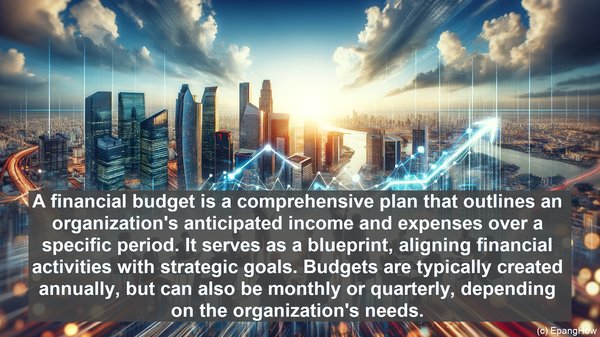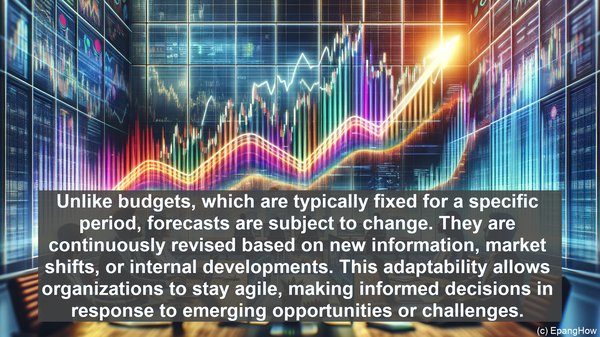Introduction: Navigating the Financial Landscape
Hello, and welcome to our video on the distinction between a financial budget and a financial forecast. In the dynamic world of finance, these terms hold immense importance. Let’s begin our exploration!

Defining the Financial Budget
A financial budget is a comprehensive plan that outlines an organization’s anticipated income and expenses over a specific period. It serves as a blueprint, aligning financial activities with strategic goals. Budgets are typically created annually, but can also be monthly or quarterly, depending on the organization’s needs.
The Budgeting Process: A Strategic Endeavor
Creating a budget involves meticulous analysis and decision-making. It necessitates a deep understanding of historical financial data, market trends, and organizational objectives. Budgets are often categorized into various sections, such as revenue, operating expenses, capital expenditures, and more. By setting clear financial targets, a budget acts as a guiding force, enabling efficient resource allocation and performance evaluation.
The Role of a Budget: Beyond Numbers
While budgets are undeniably about numbers, their significance extends beyond mere calculations. A well-crafted budget promotes accountability, as it assigns financial responsibilities to different departments or individuals. It also aids in risk management, as potential financial challenges can be anticipated and addressed proactively. Moreover, budgets facilitate communication and coordination across various organizational levels, fostering a cohesive financial strategy.
Understanding the Financial Forecast
In contrast to a budget’s focus on planned figures, a financial forecast is an estimate of future financial outcomes. It takes into account both internal and external factors that might impact an organization’s financial standing. Forecasts are often created for shorter timeframes, such as a month or a quarter, and are updated periodically to reflect the evolving business environment.
Forecasting: A Dynamic Process
Unlike budgets, which are typically fixed for a specific period, forecasts are subject to change. They are continuously revised based on new information, market shifts, or internal developments. This adaptability allows organizations to stay agile, making informed decisions in response to emerging opportunities or challenges.

The Value of a Financial Forecast
A well-prepared forecast offers several advantages. It aids in resource planning, ensuring that an organization has the necessary funds to meet its obligations. Forecasts also provide insights into cash flow, enabling proactive measures to maintain liquidity. Additionally, forecasts are instrumental in financial modeling, scenario analysis, and long-term strategic planning.
Budget vs. Forecast: Complementary Tools
While a budget and a forecast have distinct purposes, they are not mutually exclusive. In fact, they complement each other, forming a comprehensive financial framework. A budget sets the financial roadmap, while a forecast provides real-time insights, allowing for course corrections if needed. Together, they enhance an organization’s financial decision-making capabilities.
